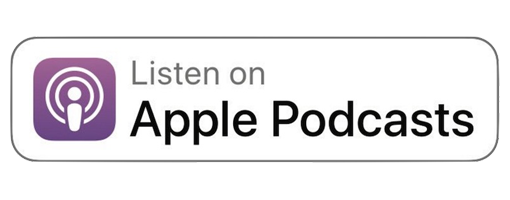Speak Clear English - Enroll Today
English & Portuguese:
Same or similar words in English and Portuguese
Let’s talk about cognates (similar words) in English and Portuguese (Brazilian). You will probably be surprised how many cognate words there are between these two languages. There are thousands! This is due to the fact that the English language, in the process of historical evolution, had many words from Latin and Greek in its vocabulary. This is similar to how Portuguese evolved.
Because there are so many cognates between English and Portuguese, it gives you a huge advantage when learning English if you’re a Portuguese speaker! The spelling will be the same or similar between the two languages, but the pronunciation will be slightly different. I’ll share a list of some of the most common Portuguese/English cognates below.
A word of caution: When you dedicate yourself to learning a new language, you should NOT just translate everything you read, hear, or speak in your own native language. This is because there are many words that exist in one language that do not exist in the other, and there are also many words and expressions that, if translated literally, will not have a translation that makes sense. Just know that your first language is unique, and your new language is something you will learn, without trying to create parallels all the time. That being said, there are some parallels that will help increase your vocabulary quickly.
In the cognate list below, you will see the following for each word: English, Portuguese and Part of Speech. Ready? Let’s embark on this wonderful world made up of words.
A
Acne / Acne / noun
Album / Álbum / noun
Animal / Animal / noun
Area / Área / noun
Avenue / Avenida / noun
B
Bacon / Bacon / noun
Banana / Banana / noun
Ballet / Balé / noun
Basically / Basicamente / adverb
Bilingual / Bilíngue / adjective
C
Capital / Capital / noun
Central / Central / adjective
Cabin / Cabine / noun
Calculator / Calculadora / noun
Capture / Capturar / verb
D
Diagonal / Diagonal / adjective
Diesel / Diesel / noun
Digital / Digital / adjective
Declaration / Declaração / noun
Defend / Defender / verb
E
Eclipse / Eclipse / noun
Email / E-mail / noun
Ecological / Ecológico / adjective
Economy / Economia / noun
Elaborate / Elaborado / adjective
F
Familiar / Familiar / adjective
Federal / Federal / adjective
Fabulous / Fabuloso / adjective
Family / Família / noun
Feminine / Feminino / adjective
G
Gas / Gas / noun
Glamour / Glamour / noun
Galaxy / Galáxia / noun
General / Geral / adjective
Generosity / Generosidade / noun
H
Hectare / Hectare / noun
Horizontal / Horizontal / adjective
Helicopter / Helicóptero / noun
Hesitation / Hesitação / noun
Historic / Histórico / adjective
I
Ideal / Ideal / adjective
Individual / Individual / noun
Identical / Idêntico / adjective
Identity / Identidade / noun
Idiot / Idiota / noun
J
Jaguar / Jaguar / noun
Judo / Judô / noun
January / Janeiro / noun
Jesus Christ / Jesus Cristo / noun
Justice / Justiça / noun
K
Karaoke / Karaokê / noun
Kiwi / Kiwi / noun
Kangaroo / Canguru / noun
Kilogram / Quilograma / noun
Koala / Coala / noun
L
Latitude / Latitude / noun
Local / Local / adjective
Laboratory / Laboratório / noun
Latin / Latim / noun
Leopard / Leopardo / noun
M
Manual / Manual / adjective
Material / Material / noun
Magical / Mágico / adjective
March / Março / noun
Maximum / Máximo / adjective
N
Natural / Natural / adjective
Nuclear / Nuclear / adjective
Name / Nome / noun
Navigation / Navegação / noun
Necessary / Necessário / adjective
O
Oasis / Oásis / noun
Opera / Ópera / noun
Obedicence / Obediência / noun
Obligation / Obrigação / noun
Obvious / Óbio / adjective
P
Panda / Panda / noun
Peculiar / Peculiar / adjective
Page / Página / noun
Panic / Pânico / verb
Participant / Participante / noun
Q
Qualification / Qualificação / noun
Question / Questão / noun
Questionnaire / Questionário / noun
Quota / Cota / noun
Qualified / Qualificado / adjective
R
Radiation / Radiação / noun
Rare / Raro / adjective
Reality / Realidade / noun
Receive / Receber / verb
Recommend / Recomendar / verb
S
Sauna / Sauna / noun
Sentimental / Sentimental / adjective
Similar / Similar / adjective
Sacrifice / Sacrifício / noun
Sarcasm / Sarcasmo / noun
T
Terminal / Terminal / noun
Terror / Terror / noun
Trivial / Trivial / adjective
Talent / Talento / noun
Technology / Tecnologia / noun
U
Universal / Universal / adjective
Usual / Usual / adjective
Ultimate / Ultimato / adjective
Uniform / Uniforme / noun
Unit / Unidade / noun
V
Vapor / Vapor / noun
Video / Vídeo / noun
Vacinne / Vacina / noun
Vampire / Vampiro / noun
Varied / Variedade / adjective
W
Whiskey / Whisky / noun
X
x-ray / raio-x / noun
Y
Yoga / Ioga / noun
Yogurt / Iogurte / noun
Z
Zebra / Zebra / noun
Zero / Zero / noun
Zigzag / Ziguezague / noun
Zone / Zona / noun
Zoo / Zoológico / noun
Did I forget a word you would like to share? Leave it in the comments!
Now that you know more about the background of the language you are studying, it’s time to get better at speaking English!
Click on one of the following links to start speaking clearer English!
1) CLEAR ENGLISH PRONUNCIATION VIDEO COURSE
2) ENGLISH VOCABULARY – AUDIO FILES & PDF – TOEFL & IELTS
3) IDIOMS IN CONVERSATION
4) JUMPSTART YOUR ENGLISH AUDIOBOOK + EBOOK
Follow us on Youtube & Instagram:
@studyenglishwithandrea – Daily English posts, tips and vocabulary!
@citizenshiptest – For those who want to study for the American citizenship test.
Sources:
https://dictionary.cambridge.org/pt/dicionario/ingles-portugues/
https://www.collinsdictionary.com/dictionary/english
https://www.wizard.com.br/idiomas/25-palavras-em-ingles-que-tem-versao-no-portugues/
https://www.ef.com.br/guia-de-ingles/vocabulario-ingles/3000-palavras/
https://www.englishspeak.com/pt/english-words
Until next time, Happy Learning!
Speak Clear English - Enroll Today

Jhessika Nascimento
Director of International Partnerships
Jhessika Nascimento is the Director of International Partnerships for Study With Andrea and lives in Brasilia, Brazil.
Jhessika is a bilingual teacher of English and Portuguese, studying for a Master's Degree in Strategic Management in Information Technologies at the Universidad Internacional Iberoamericana.
Graduation in Letters - Portuguese and English.
Postgraduate in Teaching in Higher Education.
Postgraduate in Risk Management and Cybersecurity.
Postgraduate Executive MBA in Process Management BPM-CBOK.
Postgraduate in Translation and Proofreading of Texts in English.
The following is a TOEFL Reading practice test to help you prepare for the Reading section of the TOEFL test.
Instructions: Read the sample passage below and then answer the questions that follow.
TOEFL Reading Practice Passage
Gorillas are ground-dwelling, predominantly herbivorous apes that inhabit the forest of central Sub-Saharan Africa. The genus Gorilla is divided into two species: the eastern gorillas and the western gorillas (both critically endangered), and either four or five subspecies. They are the largest living primates. The DNA of gorillas is highly similar to that of humans, from 95 to 99% depending on what is included, and they are the next closest living relatives to humans after the chimpanzees and bonobos.
Gorillas' natural habitats cover tropical or subtropical forest in Sub-Saharan Africa. Although their range covers a small percentage of Sub-Saharan Africa, gorillas cover a wide range of elevations. The mountain gorilla inhabits the Albertine Rift montane cloud forests of the Virunga Volcanoes, ranging in altitude from 2,200 to 4,300 metres (7,200 to 14,100 ft). Lowland gorillas live in dense forests and lowland swamps and marshes as low as sea level, with western lowland gorillas living in Central West African countries and eastern lowland gorillas living in the Democratic Republic of the Congo near its border with Rwanda.
(#1) Gorillas move around by knuckle-walking, although they sometimes walk upright for short distances, typically while carrying food or in defensive situations. (#2) A 2018 study investigating the hand posture of 77 mountain gorillas at Bwindi Impenetrable National Park (8% of the population) found that knuckle walking was done only 60% of the time, and they also supported their weight on their fists, the backs of their hands/feet, and on their palms/soles (with the digits flexed). (#3) Studies of gorilla handedness have yielded varying results, with some arguing for no preference for either hand, and others right-hand dominance for the general population. (#4)
The eastern gorilla is more darkly colored than the western gorilla, with the mountain gorilla being the darkest of all. The mountain gorilla also has the thickest hair. The western lowland gorilla can be brown or grayish with a reddish forehead. In addition, gorillas that live in lowland forest are more slender and agile than the more bulky mountain gorillas. The eastern gorilla also has a longer face and broader chest than the western gorilla. Like humans, gorillas have individual fingerprints. Their eye color is dark brown, framed by a black ring around the iris. Gorilla facial structure is described as mandibular prognathism, that is, the mandible protrudes farther out than the maxilla. Adult males also have a prominent sagittal crest.
A gorilla's lifespan is normally between 35 and 40 years, although zoo gorillas may live for 50 years or more. Colo, a female western gorilla at the Columbus Zoo and Aquarium, was the oldest known gorilla at 60 years of age when she died on 17 January 2017.
Questions
1. According to the passage, gorillas can live in
a. a variety of altitudes.
b. several different countries in Africa.
c. thick forests.
d. lowland forests only.
2. All of the following is true about gorillas EXCEPT
a. they primarily eat smaller animals.
b. they live in a forest habitat.
c. their genetics are similar to humans.
d. their diet consists of vegetation.
3. Look at the word predominantly in paragraph 1. The word predominantly in this passage refers to
a. impulsively
b. unfortunately
c. mainly
d. lastly
4. Look at the word inhabits in paragraph 2. The word inhabits in this passage refers to
a. lives in
b. protects
c. goes
d. works
5. The author implies that
a. most gorillas prefer using their left hand over their right.
b. gorillas rarely walk on their knuckles.
c. gorillas regularly walk upright for long distances.
d. studies haven't solidly proven which hand gorillas prefer using.
6. Why does the writer mention that the eastern gorilla also has a longer face and broader chest than the western gorilla?
a. To validate the importance a broad chest in western gorillas
b. To define the meaning of "broad"
c. To highlight a physical difference between types of gorillas
d. To demonstrate that most gorillas are identical in physical build
7. Which of the following statements is true for BOTH eastern and western gorillas.
a. Both eastern and western gorrilas are brown with red foreheads.
b. Both eastern and western gorrilas have unique fingerprints.
c. Both eastern and western gorrilas have thin hair.
d. Both eastern and western gorrilas have light brown eyes.
8. In Paragraph 3, look at the four numbers (#1, #2, #3, #4) that indicate where the following sentence would be added to the passage.
Such a range of hand postures was previously thought to have been used by only orangutans.
Where would the sentence best fit?
(View all the correct answers below.)
Great job! If you're ready to take your TOEFL preparation to the next level, go to StudyWithAndrea.com/TOEFL.
Answers: 1. d 2. a 3. c 4. a 5. d 6. c 7. b 8. #3
Click on one of the following links to start speaking clearer English!
1) TOEFL MASTER CLASS
2) free mini-course "punctuation mistakes to avoid"
3) Clear English Pronunciation Video Course
4) English Vocabulary - Audio Files & PDF - TOEFL & IELTS
About Andrea
Andrea Giordano is the founder of StudyWithAndrea.com and has taught more than 1,000,000 students from 180 countries. Andrea holds a Master of Education (TESOL) from Shenandoah University, and is the former Executive Director of TESOL and ESL programs at Campbellsville University. Andrea is a proven leader in online English teaching and is driven by her passion to help you speak English clearly.






Here’s a few more 😉:
Stellar / a estrela — (the star)
society / sociedade
sacred / sacré
semantics / semântica
the sport / esporte
student / estudante
arch / curvéu
euforia / euforia / noun
Europe / Europa / noun
exercício / exercise / noun
extra / extra / adjective
coffee / café
camera / câmera
ingredients / ingredientes
map / mapa
mint / menta
paint / pintar
register / registro
ruin / ruína
How about these?
shave depilar
exercise exercício
ruin ruína
paint pintar
register registro
Can you please correct this word: Sacriface / Sacrifício / noun . It’s sacrifice not sacriface.
Thanks so much for pointing that out, Andie!